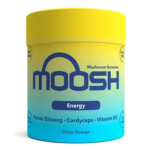In recent years, the role of vitamins in supporting immune function has garnered significant attention. As our understanding of immunology deepens, so does our appreciation for the impact that vitamins can have on our body’s defenses against illness. This guide aims to explore the relationship between vitamins and immune support, covering their functions, sources, supplementation guidelines, and frequently asked questions.
Understanding Immune Support and Vitamins
The immune system is a complex network of cells, tissues, and organs that work together to defend the body against harmful pathogens such as bacteria, viruses, and parasites. Optimal immune function relies on various factors, including adequate nutrition. Vitamins play crucial roles in supporting different aspects of immune response, from initial pathogen recognition to the production of antibodies.
How do vitamins support the immune system
Vitamins contribute to immune function in several ways:
- Vitamin A: Essential for maintaining the integrity of skin and mucosal cells, which act as barriers to pathogens.
- Vitamin C: A powerful antioxidant that supports immune cell function and enhances the production of certain antibodies.
- Vitamin D: Helps regulate immune responses and may reduce the risk of respiratory infections.
- Vitamin E: Protects cell membranes from oxidative damage, thereby supporting immune cell function.
What are the best food sources of immune-supporting vitamins
- Vitamin A: Found in liver, fish oils, dairy products, and fortified foods.
- Vitamin C: Abundant in citrus fruits, berries, kiwi, bell peppers, and leafy greens.
- Vitamin D: Primarily synthesized by the body through sunlight exposure; also found in fatty fish, egg yolks, and fortified foods.
- Vitamin E: Found in nuts, seeds, vegetable oils, and leafy greens.
Can vitamin deficiencies weaken the immune system
Yes, deficiencies in certain vitamins can impair immune function. For instance, vitamin D deficiency has been linked to increased susceptibility to infections, while inadequate vitamin C intake may reduce the body’s ability to fight off illnesses.
Key Vitamins for Immune Support
Vitamin A
What role does Vitamin A play in immune function
Vitamin A is essential for the development and maintenance of the epithelial cells that line the respiratory and gastrointestinal tracts, acting as a barrier against pathogens. It also supports the function of immune cells involved in the initial response to infections.
What are good dietary sources of Vitamin A
Apart from animal sources like liver and fish oils, beta-carotene, a precursor to Vitamin A, is found in colorful fruits and vegetables such as carrots, sweet potatoes, and spinach.
Vitamin C
How does Vitamin C boost the immune system
Vitamin C enhances the function of various immune cells, including neutrophils, lymphocytes, and phagocytes, which are crucial for fighting infections. It also acts as an antioxidant, protecting immune cells from oxidative stress.
What are some rich sources of Vitamin C
Citrus fruits like oranges and grapefruits, as well as strawberries, kiwi, bell peppers, and broccoli, are excellent sources of Vitamin C.
Vitamin D
What is the connection between Vitamin D and immune health
Vitamin D plays a vital role in modulating immune responses, including the production of antimicrobial peptides and cytokines that regulate immune activity. Adequate Vitamin D levels may reduce the risk and severity of respiratory infections.
How can one ensure sufficient Vitamin D intake
Sunlight exposure is a primary source of Vitamin D synthesis in the body. Foods like fatty fish (e.g., salmon, mackerel), egg yolks, and fortified dairy products also contribute to Vitamin D intake.
Vitamin E
How does Vitamin E support immune function
As an antioxidant, Vitamin E protects immune cells from oxidative damage caused by free radicals. This protection helps maintain the integrity and function of immune cells involved in defending against infections.
What foods provide Vitamin E
Nuts (especially almonds and sunflower seeds), seeds, vegetable oils (such as sunflower and safflower oil), and leafy greens like spinach are good dietary sources of Vitamin E.
Vitamin Supplements for Immune Support
Should one consider taking vitamin supplements for immune support
While a balanced diet rich in fruits, vegetables, and whole grains generally provides adequate vitamins for immune function, certain populations may benefit from supplements. These include individuals with poor dietary intake, limited sun exposure (for Vitamin D), or specific medical conditions that affect nutrient absorption.
What are the potential risks of vitamin supplements
Excessive intake of certain vitamins, particularly fat-soluble vitamins like A and D, can lead to toxicity over time. It’s important to follow recommended daily allowances and not exceed safe upper limits unless advised by a healthcare professional.
FAQs on Vitamins and Immune Support
Can vitamins prevent COVID-19 or other infections?
While vitamins support immune function, they are not a substitute for vaccines or other preventive measures against infectious diseases. Maintaining overall health through balanced nutrition, regular exercise, and good hygiene practices is crucial for immune resilience.
Is it safe to take multiple vitamin supplements together?
Combining vitamins within recommended daily allowances is generally safe. However, excessive intake of certain vitamins, such as Vitamin A or D, can pose health risks. Consult a healthcare provider before starting any new supplements.
How long does it take for vitamins to improve immune function?
The effects of vitamins on immune function vary and depend on factors like current nutritional status, overall health, and dosage. Consistent intake of immune-supporting vitamins through diet or supplements can gradually enhance immune resilience.
Can children benefit from vitamin supplements for immune support?
Children with poor dietary habits or limited exposure to sunlight (for Vitamin D synthesis) may benefit from vitamin supplements under pediatrician guidance. A balanced diet rich in fruits, vegetables, and whole grains remains essential for their overall health.
Are there specific vitamins for seasonal immune support?
Certain vitamins, like Vitamin C and Zinc, are commonly associated with seasonal immune support due to their roles in supporting immune cell function and reducing the duration of common cold symptoms.
Can older adults benefit from vitamin supplements?
Older adults may have reduced nutrient absorption and synthesis, making them more susceptible to vitamin deficiencies. Supplements, particularly Vitamin D and B12, may support immune function and overall health in this population.
How can one maintain optimal Vitamin D levels?
Balancing sunlight exposure with dietary sources (e.g., fatty fish, fortified foods) is key to maintaining adequate Vitamin D levels. In regions with limited sunlight, supplements may be necessary, especially during winter months.
Are there natural ways to boost Vitamin C intake?
Consuming a variety of fruits and vegetables daily provides ample Vitamin C. Including citrus fruits, berries, bell peppers, and leafy greens in meals and snacks can help meet daily requirements.
Can vegetarians and vegans get enough vitamins for immune support?
Vegetarians and vegans can obtain immune-supporting vitamins like Vitamin C, E, and beta-carotene from plant-based sources such as fruits, vegetables, nuts, seeds, and fortified foods. Supplements may be considered based on individual dietary habits and needs.
How does stress affect vitamin requirements for immune support?
Chronic stress can deplete certain vitamins (e.g., Vitamin C) and compromise immune function. Managing stress through relaxation techniques, regular exercise, and adequate sleep supports overall immune resilience
In conclusion, vitamins play pivotal roles in supporting immune function through various mechanisms. While a balanced diet rich in vitamins is generally sufficient for most people, supplements can be beneficial for individuals with specific needs or deficiencies. Understanding the roles of different vitamins and maintaining adequate intake contributes to overall immune resilience and health. Always consult with a healthcare provider before starting any new supplement regimen to ensure safety and efficacy
- Neck Line Filler Treatment Near Forest Green, Surrey - May 31, 2025
- Skin Treatment & Skincare Consultations Near Blackheath, Surrey - May 31, 2025
- Vista Edge Vape For Beginners: Everything You Need To Know - May 31, 2025



